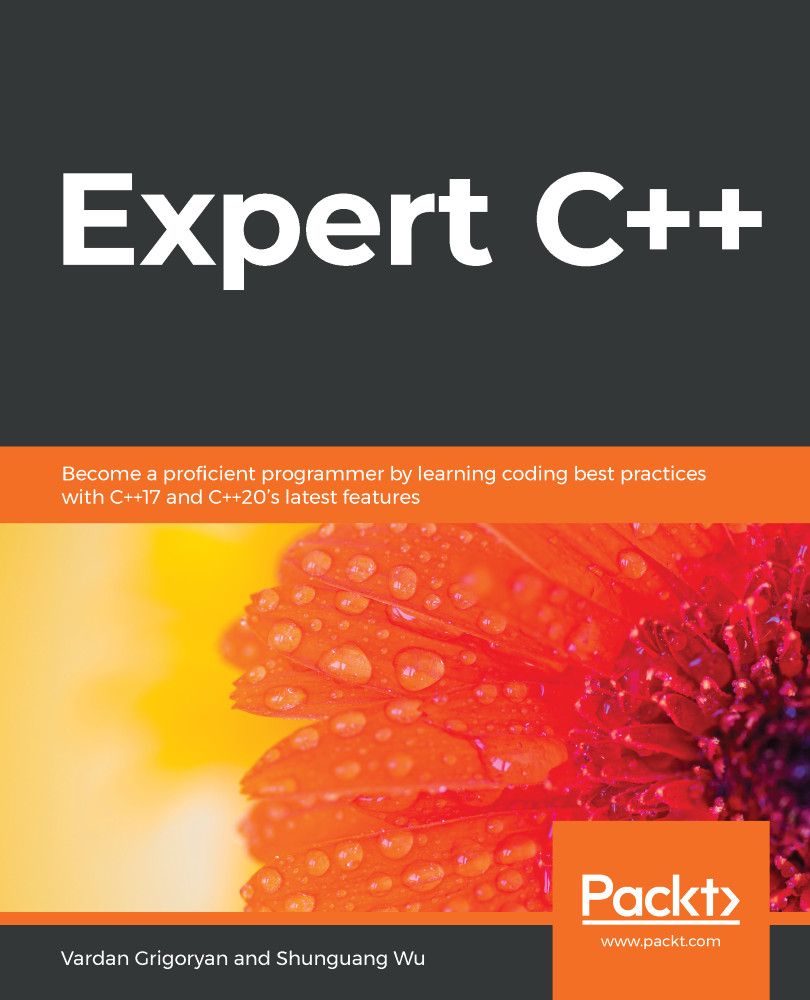Classes make things a lot easier when dealing with objects. They do the simplest necessary thing in OOP: they combine data with functions for manipulating data. Let's rewrite the example of the Product struct using a class and its powerful features:
class Product {
public:
Product() = default; // default constructor
Product(const Product&); // copy constructor
Product(Product&&); // move constructor
Product& operator=(const Product&) = default;
Product& operator=(Product&&) = default;
// destructor is not declared, should be generated by the compiler
public:
void set_name(const std::string&);
std::string name() const;
void set_availability(bool);
bool available() const;
// code omitted for brevity
private:
std::string name_;
double price_;
int rating_;
bool available_;
};
std::ostream& operator<<...

